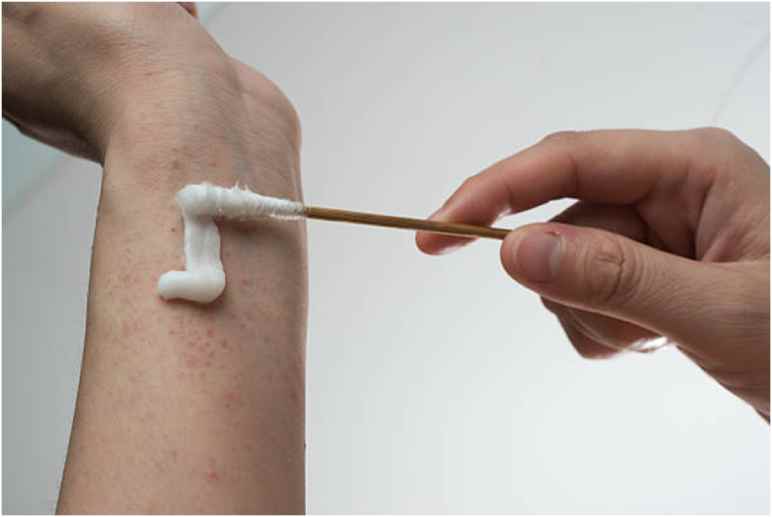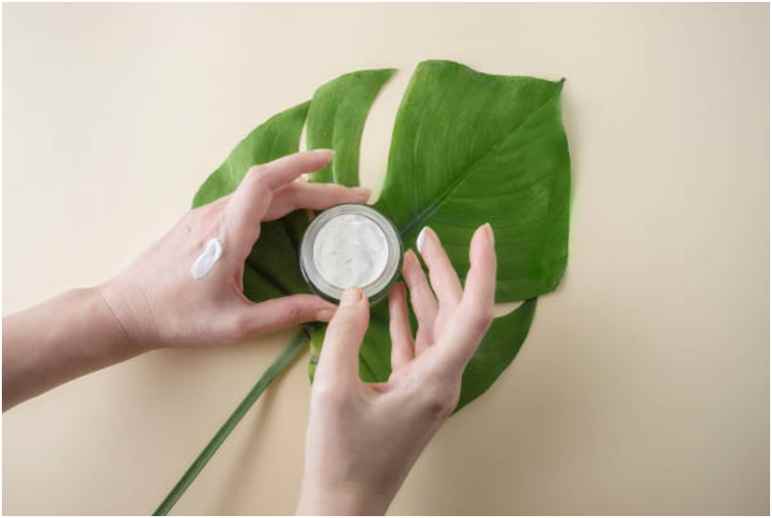Eczema, a skin condition that affects over 31 million Americans, causes various ailments. These include redness, itching, and cracked, blistered skin. Many factors cause atopic dermatitis, such as allergens, ranging from environmental factors to food allergies, stress, and synthetic materials.
Many of the creams and treatments available, although effective, feature harsh chemicals. This is one of the reasons many suffering from eczema wish to embrace natural creams and home remedies.
Here we delve more into the power of plant-based ingredients, giving insight into tried and tested botanicals. These are celebrated for their hydration-boosting and anti-inflammatory properties. Read on to discover more.
Why Choose Natural Eczema Creams?

If harsh chemicals harm your skin, your complexion is particularly sensitive or you prefer to use plant-based, paraben-free creams, natural remedies are something you should try.
Whether you make natural eczema creams at home, using tried and tested recipes online, or invest in the best natural eczema cream from your local health store, various options exist.
One point to note? What works for one patient may not work for another. Trialing these creams is a must. In addition, establishing the severity of your eczema and your skin type will assist you in choosing the correct product. Rest assured, with so many remedies available, there is one certain to be tailored to your exact needs.
How Creams Help to Soothe the Symptoms of Eczema

Unfortunately, there isn’t a cure for eczema. Thankfully, there are many lotions and potions available. All are suited to those who suffer from this ailment. Many of which will allow you to embrace your daily life without interruption.
As well as diet, meditation, Chinese herbs, and Ayurvedic treatments, creams, and balms are readily available. These help to repair the barrier of your skin, thus lessening the symptoms of eczema.
Unlike traditional body lotions and face moisturizers, eczema creams target severely dry skin, redness, itchiness, and sensitivity. All of the ailments associated with eczema.
Plant-Based Ingredients Proven to Work

Powerful botanicals, including shea butter, aloe vera, and coconut oil provide relief to various skin irritations. Such as eczema. Here we learn more about the benefits of each:
Virgin Coconut Oil: Creams boasting virgin coconut oil are a safe alternative to chemical-based eczema treatments. Why? Coconut oil contains a fatty acid called monolaurin. Due to its antibacterial properties, it fights Staphylococcus aureus, a colonization that can develop in eczema patients.
Shea Butter: Aside from boasting hydrating properties, shea butter is celebrated for its antioxidant and anti-inflammatory benefits. This botanical wonder boasts several bioactive ingredients, which your skin will love!
Chamomile: Applying chamomile to your skin is an effective way to treat eczema. Studies show that when applied topically, this wonder herb is 60% as effective as 0.25% hydrocortisone cream.
When ingested, either via tablet form or tea, it also reduces signs of insomnia and anxiety. Both contribute to stress, which can cause an eczema flare-up. Creams infused with chamomile extract are a great option if you have sensitive skin, it’s rare for this herb to cause any allergies.
Aloe Vera: Described as one of nature’s best moisturizers, this herb is highly beneficial to you if you suffer from dry skin.
According to a systematic review, aloe vera boasts various properties that can help ease the symptoms of eczema. These include immune boosting, anti-microbial, wound healing, and antioxidant benefits.
Does the type of eczema you have cause your skin to crack and bleed? Aloe vera’s antibacterial properties can help. How? By preventing skin infections and assisting in a quick healing process.
Virgin Sunflower Seed Oil: Another oil boasting eczema-fighting, anti-inflammatory properties. In a moisturizer, this can assist in soothing inflamed, itchy skin. It will also add an injection of hydration to your skin, helping to preserve the natural barrier.
Borage Seed and Jojoba Oil: These two oils are other promising plant-based remedies to make it on the list. Both are safe and effective to use as an eczema treatment. The topical skin applications of some plant oils, including these two, boast anti-inflammatory and antioxidant effects on the skin, promoting wound healing and barrier repair.
Evening Primrose Oil: Derived from the evening primrose plant, when used as a topical treatment, this herb aids irritation caused by eczema. This is down to the components it contains, which include gamma-linolenic acid and omega-6 fatty acids. Both lessen inflammation.
Witch Hazel: Derived from the leaves and bark of the witch hazel shrub, this astringent is another century-old remedy. When applied to skin suffering from eczema, it helps to calm inflamed areas, relieve itching and soothe infection.
Calendula: This herbal remedy has been used for hundreds of years to treat skin irritations, including cuts, burns and inflammation. It assists in sending blood to injured areas, fights infection and hydrates the skin.
Tea Tree Oil: Creams containing just 10% tea tree oil can assist in. Lessening itching caused by eczema. After just ten days, symptoms appear significantly improved.
The Bottom Line
Topical steroid creams, although the keystone of effective eczema treatments, aren’t the preferred option for all, especially if the extended use of corticosteroids concerns you. Botanical-based alternatives are relatively inexpensive, and can easily be incorporated into a treatment plan.
Before trying natural alternatives, always ask for your physician’s guidance. In addition, allow a little time for herb-based creams to take effect. Results aren’t expected to be instant.
Have A Look :-
- Why Is Brand Reputation Important For Your Business?
- Saveinsta: Download Instagram Photos Videos Reels And Many More
- Are There Outdoor Extension Cords Specifically Designed For Cold Weather?
Note :- All Images are used form Istockphoto.com

